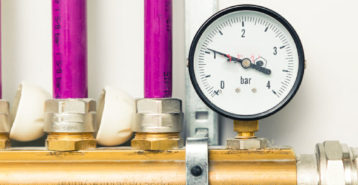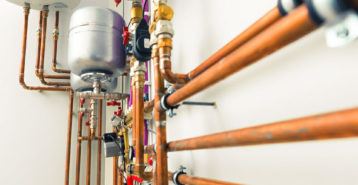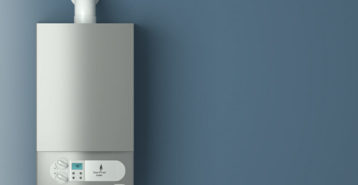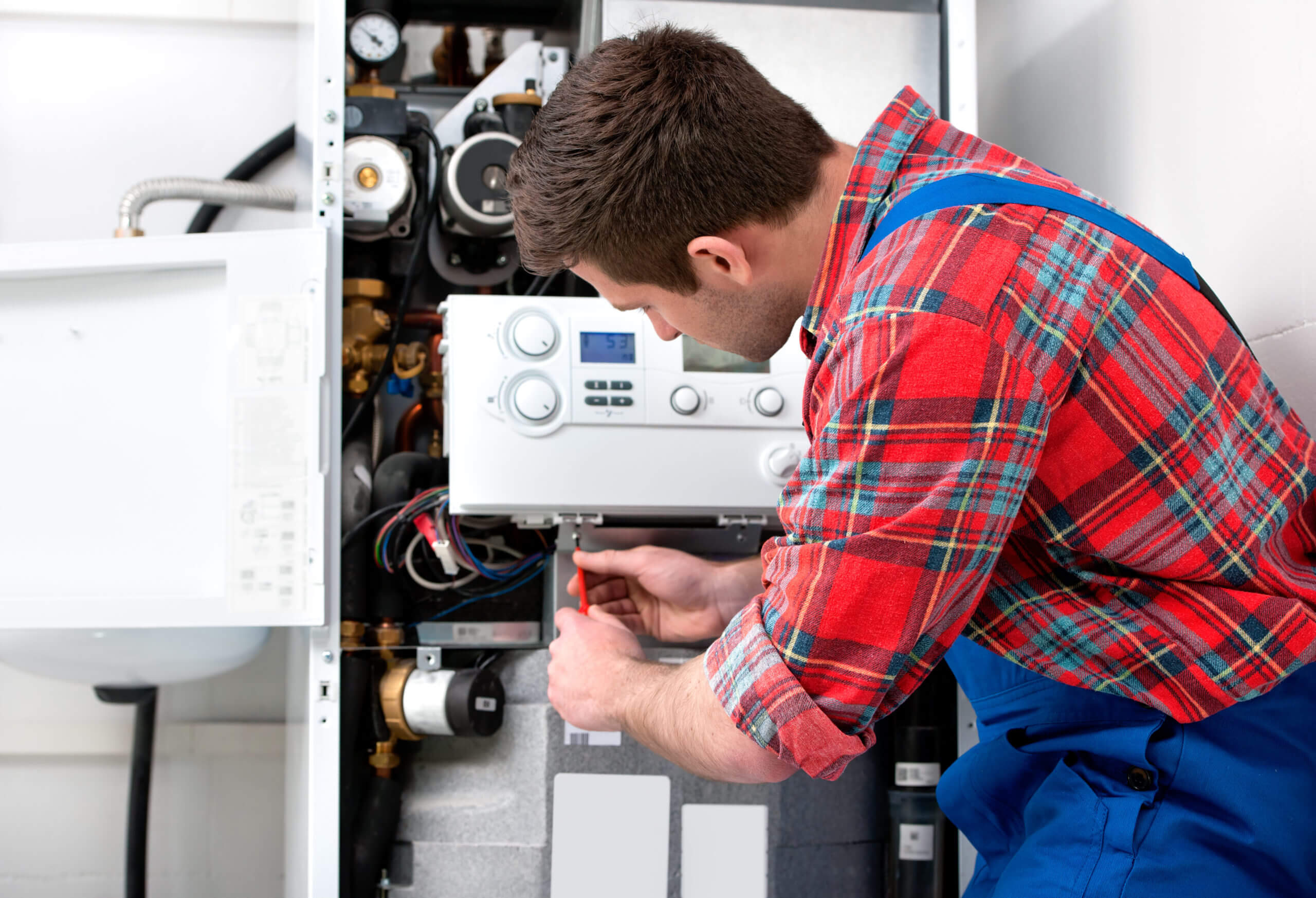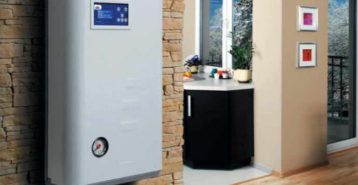What Is an Electric Boiler for Home Heating?
An electric boiler heats water (or creates steam in specialized models) using electric heating elements instead of burning fuel. Because there is no combustion, these systems are clean, quiet, and simpler to install than gas or oil units. Electric boilers for home heating are common in smaller homes, apartments, all-electric houses, or where gas service is not available.
How Much Do Electric Boilers Cost?
Your total comes from the boiler itself, materials, and skilled labor. Here is what most homeowners can expect to pay in 2026.
| Item | Typical Cost | Notes |
|---|---|---|
| Electric boiler (equipment only) | $1,800 to $5,500 | Boiler unit price without labor or materials. |
| Total cost for most homes | $6,500 to $12,500 | Typical all-in cost, including labor and standard materials. |
| Lower and higher extremes | $5,000 to $15,000+ | Varies with size, electrical upgrades, and distribution work (radiators, piping, zones). |
What drives price up or down: Boiler capacity, efficiency, panel upgrades, new circuits, controls, air separators/expansion tank, and any radiator or zone additions.
How Do Electric Boilers Work?
Inside the unit, electric elements warm water as it flows through the heat exchanger or tank. A circulator pump moves that hot water through pipes to radiators, baseboards, or in-floor (radiant) loops. As rooms give up heat, cooler water returns to the boiler to be reheated. There is no vent or chimney because nothing is burned — a key reason electric boiler heating is straightforward to install.
Electric Boilers vs. Other Boiler Types
Electric vs Gas
- Installation: Electric is simpler — no gas line, vent, or combustion air.
- Monthly Cost: Electricity is usually pricier per unit of heat than natural gas, so bills can be higher.
- Safety/Space: No flue, no combustion, and compact wall-hung options.
Electric vs Oil
- Installation: No oil tank or fuel deliveries; often easier and cleaner.
- Monthly Cost: Depends on local electricity vs. oil prices. Electricity is often higher on a per-BTU basis.
- Maintenance: Fewer moving parts, no soot or burner tune-ups.
Electric vs Steam
- Distribution: Modern electric boilers typically heat hot water systems; steam replacements require steam-specific components and piping.
- Comfort: Hot-water systems offer more even temperatures and easier zoning than legacy steam.
Combi Electric Boilers
A combi unit provides space heat and domestic hot water from one appliance. They save space and remove the need for a separate water heater. Make sure the model’s hot-water output (gallons per minute) matches your shower and laundry needs.
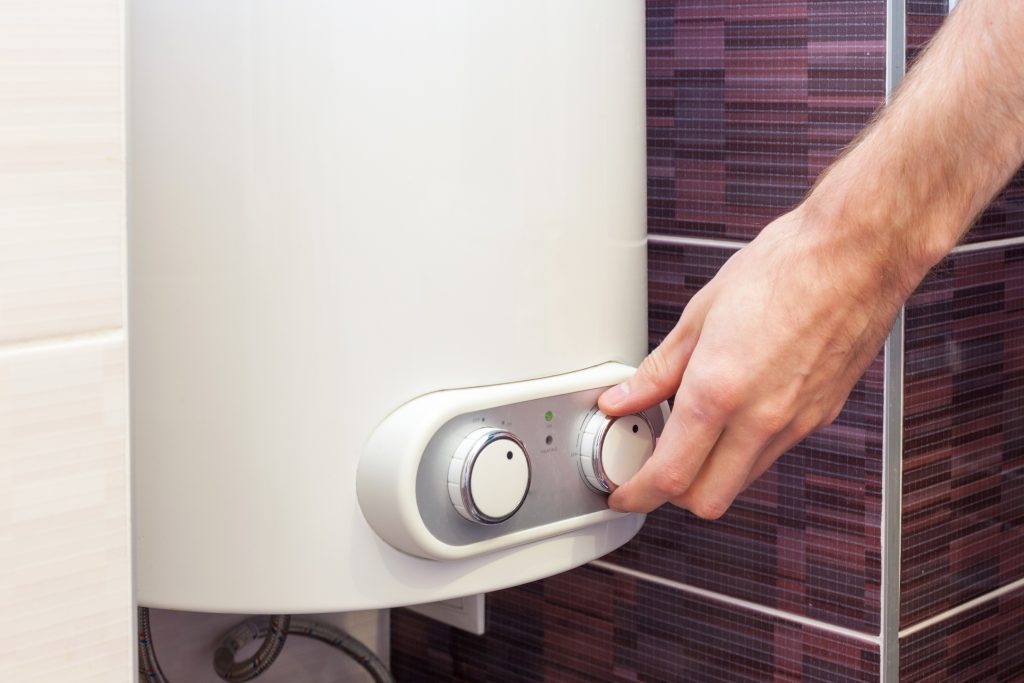
What Size Electric Boiler Do I Need?
Your contractor should size the boiler with a heat-loss calculation (often called a Manual J). As a rough guide:
- Small Homes or Apartments: 6 to 9 kW
- Average Homes: 9 to 15 kW
- Larger or Colder-Climate Homes: 15 to 24 kW+
Over-sizing increases upfront cost and can reduce comfort. Under-sizing means the boiler will have to run longer to heat a room.
Pros and Cons of Electric Boilers
Pros
- Simpler Installation: No gas line, vent, or flue. Fits in tight spaces.
- Clean and Quiet: No combustion byproducts, minimal noise.
- High Unit Efficiency: Nearly 100% for the appliance.
- Good for All-Electric Homes: Pairs well with solar or off-peak utility rates.
Cons
- Operating Cost: Electricity often costs more per unit of heat than gas.
- Electrical Capacity: You might need electrical panel upgrades or dedicated circuits.
- Power Outages: Heat doesn’t work if your power goes out, unless you have backup power.
- Large Loads: Big or very cold-climate homes may need higher-kW units or multiple zones.
Are Electric Boilers Energy Efficient?
As an appliance, yes, nearly 100% of the electricity becomes heat in the water. Overall operating cost depends on your electric rate, insulation, and thermostat settings. In regions with low electricity prices or time-of-use discounts, electric boilers can be competitive. Pairing with solar can help with this.
Best Electric Boiler Brands
Look for strong warranties, readily available parts, and local installer support. Popular boiler manufacturers include:
- Viessmann: Premium efficiency and innovation.
- Buderus: Advanced engineering and reliability.
- Navien: High-efficiency condensing technology.
- Weil-McLain: Reliable performance and service.
- Burnham (U.S. Boiler Company): American-made boilers.

Electric Boiler Facts
Lifespan
Expect to get 12 to 20 years with proper sizing, clean water, and annual checks of safety devices, pumps, and expansion tanks.
Electricity Usage
Rule of thumb during active heating: a 12 kW boiler draws up to 12 kW when heating. Actual consumption depends on duty cycle (how long it runs). Better insulation and smart controls reduce runtime.
Cost to Run Monthly
At $0.15/kWh, a 12 kW boiler running 3 hours per day averages about $162/month (12 kW × 3 h/day × 30 days × $0.15). Colder months or larger homes raise usage; mild shoulder seasons are much lower.
Where Can I Find an Electric Boiler Installer?
Ask for two to three itemized quotes from licensed hydronic pros. Request a heat-loss calculation, confirm electrical requirements, and review warranties for both equipment and labor. If you want help comparing options, we can connect you with pre-vetted local hvac contractors for clear pricing and scheduling.
Compare top-rated HVAC pros in your area.
Read real homeowner reviews, explore qualifications, and view promotions. Modernize makes it easy to browse professionals and find one that will be perfect for your project.





